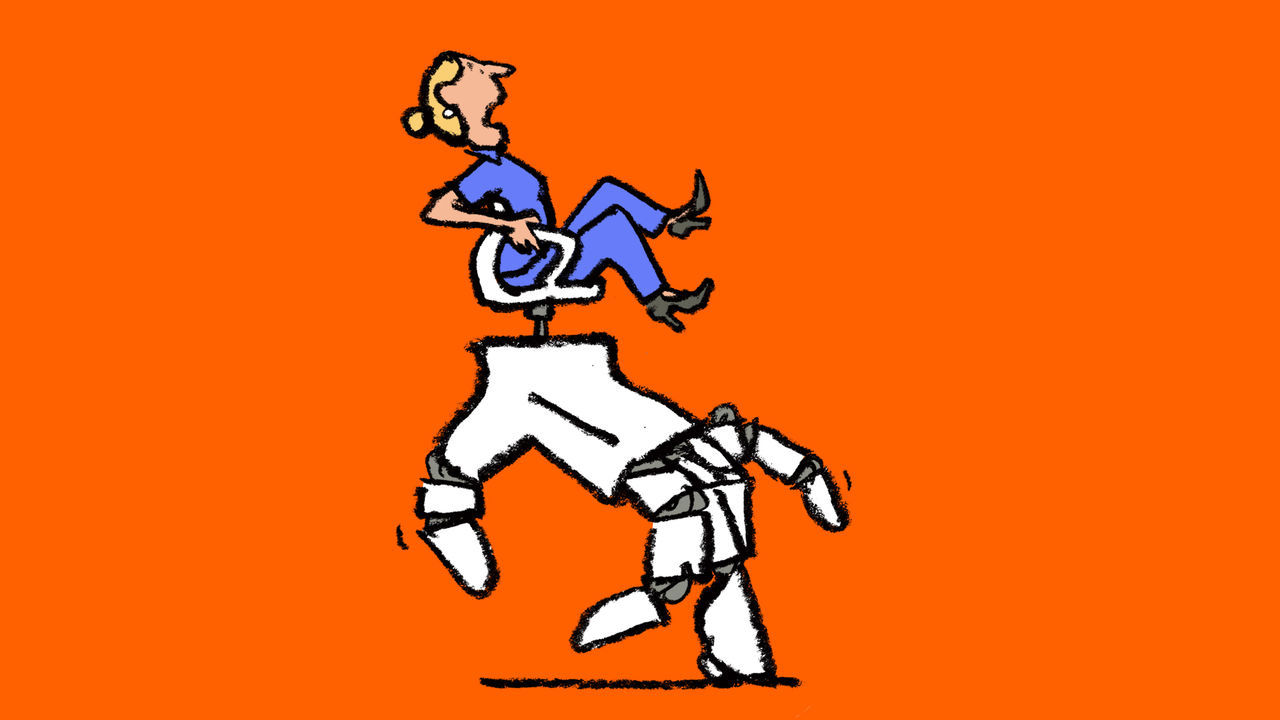
Your browser does not support the <audio> element.
July 19th was a day for help-desk heroes and support superstars. A routine software update by CrowdStrike, a cyber-security company, caused computer outages in offices, hospitals and airports worldwide. Most white-collar workers looked disconsolately at their screens and realised just how useless they are if they cannot log in. People in IT came to the rescue of helpless colleagues and stranded passengers. Their work that day was full of stress—but also full of meaning.
If machines can add purpose to some jobs when they fail, what about when they work properly? This is not an idle question. Discussions about artificial intelligence (AI) in particular easily get lost in hypothetical debates about wholesale job losses or, worse, the nature of consciousness. But technologies tend to spread in less dramatic ways, task by task rather than role by role. Before machines replace individuals, they change the nature of the work they do.
That is likely to affect job satisfaction. Many employees put a higher premium on non-monetary than monetary rewards. A recent Federal Reserve discussion paper by Katherine Lim and Mike Zabek surveyed American workers who had switched jobs to find out whether and why they thought their new positions were better; they found that interest in the work mattered more to people than pay and benefits.
Which is why another recent paper, from Milena Nikolova and Femke Cnossen of the University of Groningen and Boris Nikolaev of Colorado State University, makes for sobering reading. The authors looked at the prevalence of robots in industrial settings and how that affected workers. Robots reduced the perceived meaningfulness of jobs across the board, irrespective of age, gender, skills and the type of work. In theory, machines can free up time for more interesting tasks; in practice, they seem to have had the opposite effect.
In a separate paper, Ms Nikolova and Ms Cnossen, along with Anthony Lepinteur of the University of Luxembourg, explore why this might be. They find that industrial robots make jobs less physically taxing. But the number of tasks that remain open to humans dwindles, hurting both the variety of work and people’s understanding of the production process. Work becomes more routine, not less.
Machines need not have a dulling effect. In their research Ms Nikolova and her co-authors found that people did not perceive a loss of autonomy if they were working with computers, where they have more control of the machine than the other way round. (Presuming, of course, you can turn it on.) And automation may well have a different impact on service industries like health care, where less time spent on drudge work might indeed mean more time with patients.
A paper from 2011 by Michael Barrett of the University of Cambridge and his co-authors found that the introduction of drug-dispensing robots into hospital pharmacies had disparate effects. Pharmacists felt the quality of their jobs had improved because they had more time for patient counselling. Like the IT administrators rolling back the CrowdStrike update, technicians enjoyed the enhanced status that came with knowing how to fix the robots. Pharmacy assistants had a more miserable time of it, however, as their role shrank to loading medicine into the machines.
Consumer reactions to automation can also vary. An experiment conducted by Eugina Leung, now of Tulane University, and her co-authors tested how customers reacted to different descriptions of a cooking set. People who prided themselves on being skilled chefs really didn’t like products that promised to do everything at the touch of a button. A technology that cuts down on boring tasks is fine; one that threatens your sense of identity is not.
It is still too early to know how AI will affect the quality of work. Some will surely enjoy using a bot to brainstorm ideas and take care of menial tasks. Yet research by Pok Man Tang of the University of Georgia and his co-authors also suggests that workers who interact more with AI assistants feel lonelier and crave more social contact. The thing for managers to remember is that machines can make employees feel differently about their work. So it matters whether new technologies are introduced in collaboration with employees or imposed from above, and whether they enhance or sap their sense of competence. Bosses who ignore these issues are missing something meaningful. ■
To stay on top of the biggest stories in business and technology, sign up to the Bottom Line, our weekly subscriber-only newsletter.
















